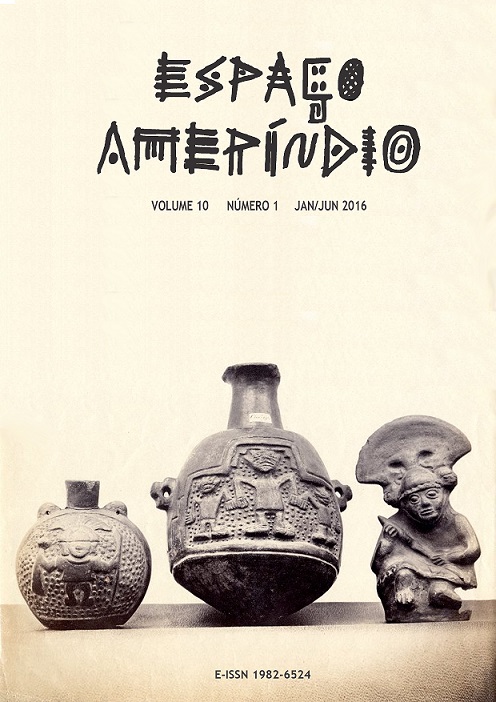STRUGGLE AND RESISTANCE IN THE PROCESS OF ETHNIC AFFIRMATION BY INDIGENOUS PEOPLES OF NORTHEASTERN BRAZIL: A CASE STUDY OF THE TAPUIA-KARIRIS FROM SÃO BENEDITO
DOI:
https://doi.org/10.22456/1982-6524.65039Keywords:
material culture, image, indigenous.Abstract
The purpose of this article is to present part of field research on the ethnic affirmation process of the Tapuias-Kariris from São Benedito ─ an indigenous collective community in Ceará/Brazil. The analysis results from an ethnography among Tapuias and observations conducted with others indigenous communities from Ceará. The Tapuias-Kariris are the latest group to self declare themselves as indigenous. In the process of self-affirmation and recognition, the first challenge faced by the group is the social refusal to recognize them as indigenous. Faced with this rejection, the group is constantly negotiating and affirming their identity. This process is performed through the reworking of the images, the material culture and cultural practices, collective elements that are now designed by the prism of ethnic belonging. Material culture and the set of practices and knowledge incorporated have a central role in the daily life of these indigenous groups. Arising from ancestral knowledge, the objects, as well as dances, songs and rituals, narrate the life and cosmological conception in a particular way. Analyzing the process of affirmation, its inherent difficultie,s as well as the role of cultural events and images, is the objective of this work.Downloads
Download data is not yet available.
Downloads
Published
2016-06-30
How to Cite
ARAÚJO, D. STRUGGLE AND RESISTANCE IN THE PROCESS OF ETHNIC AFFIRMATION BY INDIGENOUS PEOPLES OF NORTHEASTERN BRAZIL: A CASE STUDY OF THE TAPUIA-KARIRIS FROM SÃO BENEDITO. Espaço Ameríndio, Porto Alegre, v. 10, n. 1, p. 61, 2016. DOI: 10.22456/1982-6524.65039. Disponível em: https://seer.ufrgs.br/index.php/EspacoAmerindio/article/view/65039. Acesso em: 26 apr. 2025.
Issue
Section
ARTICLES




